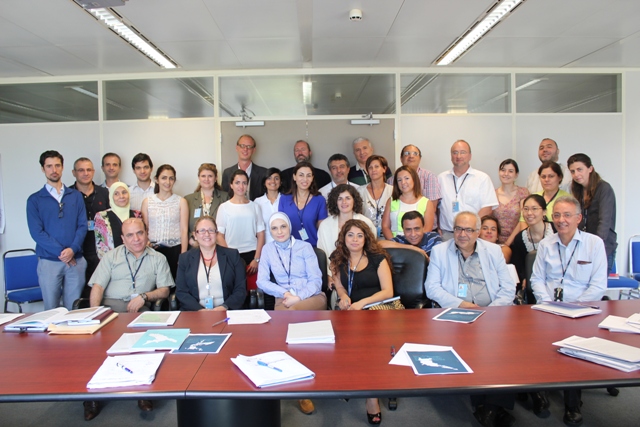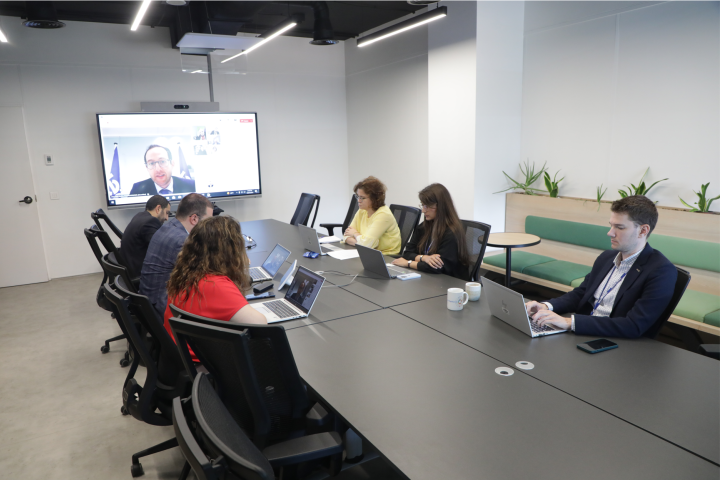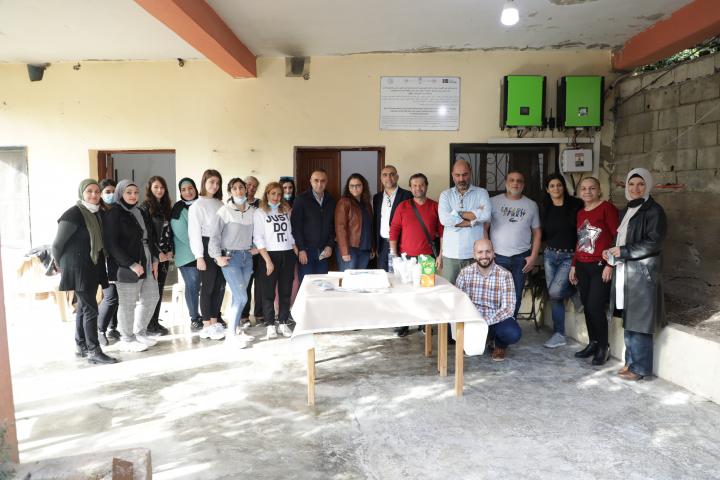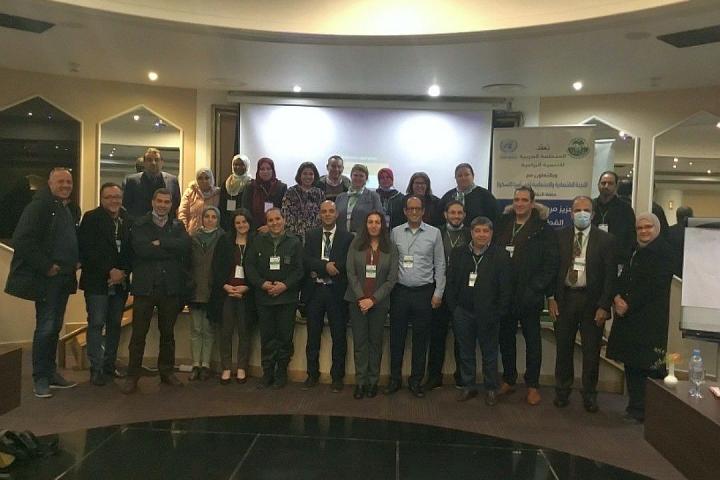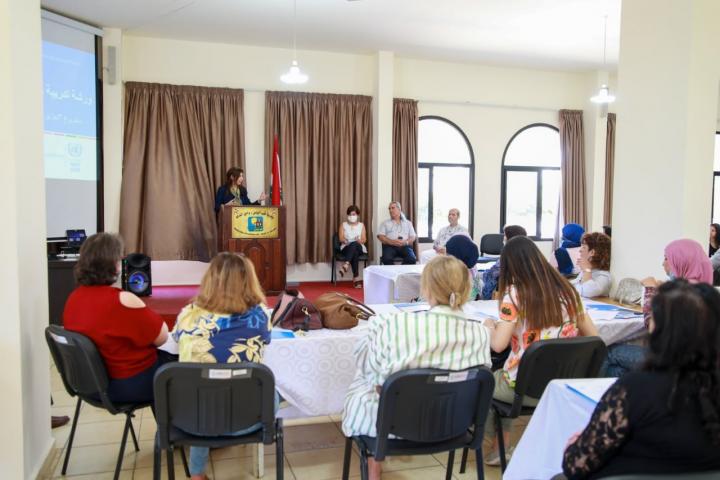After 21 years of cooperation, ESCWA and the German Federal Institute for Geosciences and Natural Resources (BGR) marked the official end of their mutual project on the management of water resources in the ESCWA region, on 8 July 2013. The project team met one last time in the presence of the representative of the Embassy of Germany in Beirut Hanan Abu-Rida, and staff from different ESCWA divisions. BGR is the central scientific authority providing advice to the Federal Government of Germany and to the private sector in all geo-related issues. Cooperation between ESCWA and BGR began in 1992 and aimed to enhance collaboration on shared water resources between ESCWA member countries. It also sought to promote the integrated management and protection of water resources. The gathering included a presentation delivered by Project Coordinator Andreas Renck providing an overview of the ESCWA-BGR project activities and achievements with a special focus on the soon-to-be-published book: the Inventory of Shared Water Resources in Western Asia. This publication comes out of the research component of the ESCWA-BGR project, and is the first effort led by the United Nations to comprehensively assess the state of transboundary surface and groundwater resources in the Middle East. It is a desk study, which has been developed in close consultation with ESCWA member countries, as well as regional and international experts. Another focus area of the ESCWA-BGR cooperation was establishing monitoring programs on shared water resources, by which the project assisted member countries in obtaining base information and more comprehensive, reliable data on their shared waters upon their request. The program contributed to national water resources planning and helped inform dialogue among riparians. Supporting regional dialogue in the water sector was also one of the pillars of the cooperation between BGR and ESCWA. Over the years, the project addressed technical, legal and institutional aspects of shared water management in regional and national workshops. A significant advance in dialogue development was supporting the preparation of a draft legal framework on shared water in the Arab region, in cooperation with the League of Arab States. One other important output was the issuance of the “Glossary of Shared Water” whose principal purpose is to facilitate dialogue, negotiations and cooperation between countries and experts on shared water resources by way of providing a unified English-Arabic common terminology.
Commission
Secretariat
Our Clusters
Collaborate
Resources
Key Resources
Updates
Get in touch
